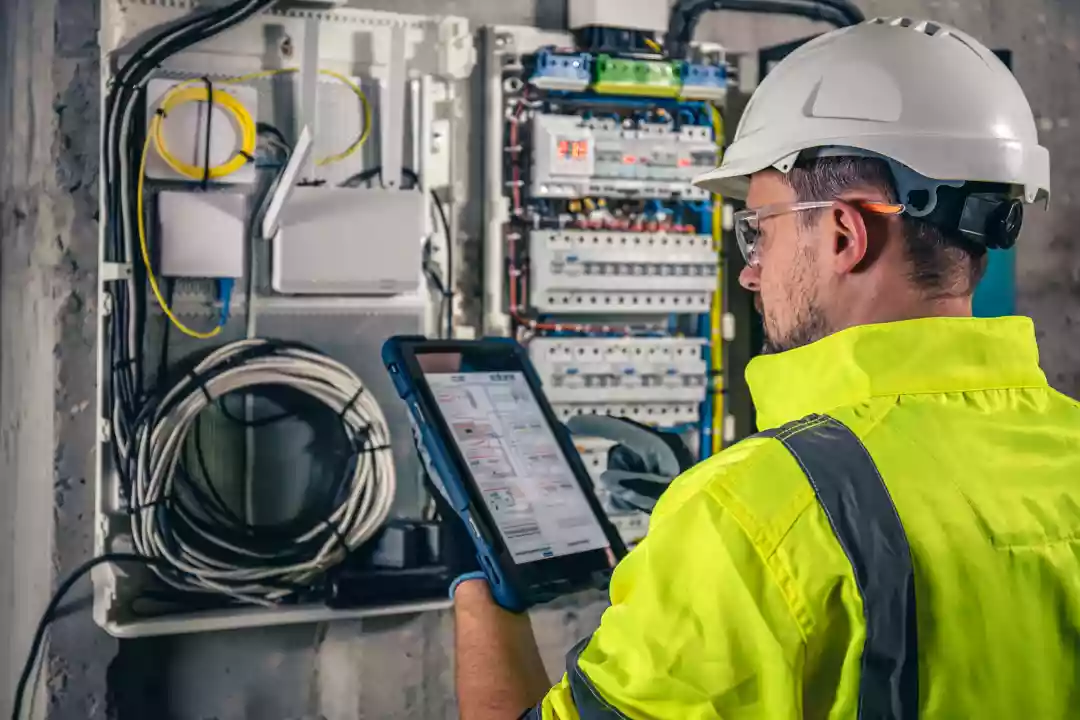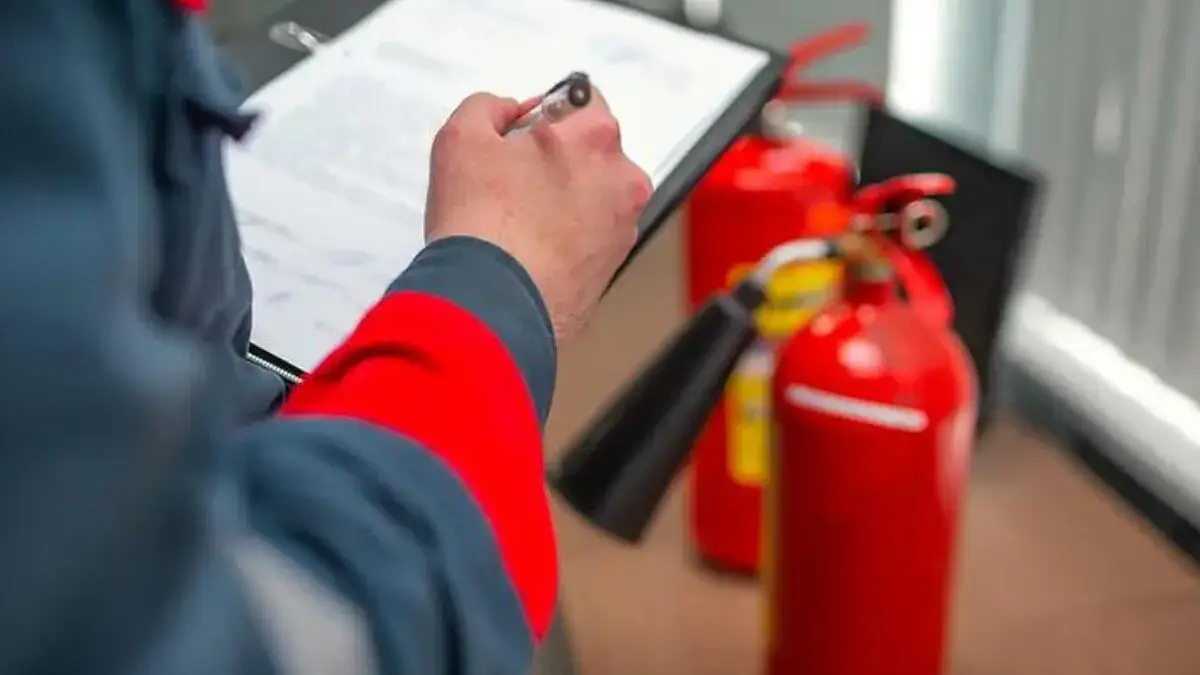Electrical safety isn’t just a legal obligation for UK landlords—it’s a fundamental responsibility that protects tenants and safeguards your property investment. If you’re managing rental properties in London or elsewhere across the UK, understanding when and how often you need an EICR certificate is essential to staying compliant and keeping your tenants safe.
This comprehensive guide explains everything you need to know about EICR frequency, validity periods, and renewal requirements under current UK legislation.
What Is an EICR Certificate?
An EICR (Electrical Installation Condition Report) is a detailed inspection document that assesses the condition and safety of a property’s electrical installations. Unlike a simple electrical check, an EICR involves a qualified electrician thoroughly examining your property’s wiring, sockets, consumer units, and fixed electrical equipment.
The inspection identifies potential hazards such as outdated wiring, overloaded circuits, or faulty installations that could pose fire risks or electrical shocks. Once completed, you’ll receive a report classifying any issues found—ranging from urgent safety concerns requiring immediate attention to minor observations that need monitoring.
For landlords across Greater London and throughout the UK, holding a valid EICR isn’t optional. It’s a legal requirement that demonstrates your commitment to tenant safety and compliance with current electrical safety regulations.
How Long Does an EICR Last?
The standard validity period for an EICR certificate is five years. This means once you’ve had a qualified electrician conduct a thorough inspection and issue a satisfactory report, that certificate remains valid for up to five years from the inspection date.
However, this five-year period isn’t absolute in every situation. The qualified electrician who performs your inspection may recommend a shorter interval if they identify concerns during the assessment. For example, if your property has older electrical installations or previous issues were noted, the electrician might suggest reinspection in three years rather than five.
It’s also worth understanding that while the certificate itself may last five years, your legal obligations as a landlord extend beyond simply holding a valid document. You must ensure electrical installations remain safe throughout the tenancy period, not just at inspection time.
Legal Requirements for Landlords: How Often Should You Get an EICR?
Since June 2020, the Electrical Safety Standards in the Private Rented Sector (England) Regulations 2020 have made EICR certificates mandatory for all private landlords in England. Similar regulations apply across Scotland, Wales, and Northern Ireland, though specific requirements may vary slightly.
When Do Landlords Need an EICR?
You must have a valid EICR in place:
At the start of each new tenancy – Before new tenants move in, you must provide them with a copy of a valid EICR certificate dated within the last five years.
At least every five years during an ongoing tenancy – Even if your tenants stay in the property for many years, you cannot let the EICR certificate expire. You must arrange a reinspection and obtain a new certificate before the existing one reaches its five-year expiry date.
When recommended by a qualified electrician – If your previous EICR recommends inspection at a shorter interval (such as every three years), you must follow that recommendation to remain compliant.
Failing to meet these requirements can result in significant penalties. Local authorities have the power to issue fines of up to £30,000 for landlords who don’t comply with electrical safety regulations. Beyond financial penalties, non-compliance puts your tenants at serious risk and could invalidate your landlord insurance.
EICR Certificate Renewal Frequency: What Landlords Must Know
Understanding the renewal cycle or EICR Certificate Renewal Frequency is crucial for maintaining continuous compliance. Many landlords in North London, South London, and across Greater London manage multiple properties, making it easy to lose track of renewal dates.
Setting Up a Renewal System
The most effective approach is treating your EICR certificates like any other critical compliance document. Create a renewal calendar that flags upcoming expiry dates at least three months in advance. This buffer gives you adequate time to:
- Book a qualified electrician during busy periods
- Arrange access to the property with your tenants
- Address any remedial work identified during inspection
- Receive and file the updated certificate before the current one expires
For landlords managing properties in East London or West London with multiple tenancies, consider staggering your EICR renewals throughout the year rather than clustering them all in the same month. This spreads the cost and administrative burden while ensuring you never miss a deadline.
What Happens If Your EICR Expires?
Allowing your EICR to expire places you in immediate breach of regulations. You cannot simply arrange an inspection after the expiry date and assume everything is fine. The law requires continuous compliance, meaning there should never be a period when you lack a valid certificate for an occupied rental property.
If your certificate has expired, contact a qualified electrician immediately to arrange an urgent inspection. In the meantime, you’re operating illegally and could face enforcement action if your local council becomes aware of the non-compliance.
EICR Report Validity UK: Understanding the Inspection Results
Not all EICR certificates are created equal. When your electrician completes the inspection, the report will include a classification code that determines whether your electrical installations are satisfactory:
Satisfactory – No dangerous or potentially dangerous issues found. The electrical installation is acceptable for continued use, and the certificate is valid for the period stated (typically five years or less if recommended).
Unsatisfactory – One or more dangerous or potentially dangerous defects identified. You must address these issues promptly, and the certificate cannot be considered valid for compliance purposes until remedial work is completed and confirmed.
Receiving an unsatisfactory report doesn’t automatically mean you’re in breach of regulations—provided you act quickly. The law recognizes that electrical issues may emerge between inspections. What matters is that you arrange for a qualified electrician to carry out necessary repairs within 28 days, or sooner if the issue poses an imminent danger.
Once remedial work is complete, the electrician should provide updated documentation confirming the installation now meets safety standards. This effectively validates your EICR for compliance purposes.
Electrical Safety Certificate London: Local Considerations
While EICR requirements apply across England, landlords operating in London face particular considerations due to the capital’s diverse housing stock and rental market dynamics.
Many rental properties across London—particularly in areas like North London and South London—feature older Victorian or Edwardian buildings with electrical installations that may not have been updated in decades. These properties often require more frequent inspections than newer builds because aging wiring systems naturally deteriorate faster.
If you’re managing properties in converted flats, which are common throughout Greater London, pay special attention to shared electrical services and common areas. While your EICR covers your rental unit’s installations, you should also verify that building-wide systems (such as communal lighting and entry systems) are properly maintained and inspected.
London’s competitive rental market means tenant expectations are high. Beyond legal compliance, holding a current EICR demonstrates professionalism and gives prospective tenants confidence in your property’s safety. Many tenants in East London and West London now specifically ask to see electrical safety certificates before committing to a tenancy.
How Often Should Landlords Get an EICR? Best Practice Recommendations
While five years is the maximum legal interval between inspections, adopting a more proactive approach often makes practical and financial sense.
Consider More Frequent Inspections If:
Your property is older than 40 years – Electrical installations in older buildings deteriorate more quickly and are more likely to have outdated components that don’t meet current safety standards.
Previous inspections identified minor issues – Even if defects were classified as non-urgent, they indicate the electrical system is aging and may benefit from closer monitoring.
You have frequent tenant turnover – Properties with short-term lets or student accommodation experience heavier wear on electrical systems from multiple occupants over time.
The property has undergone modifications – Any significant building work, extensions, or alterations that might have affected electrical installations warrant a fresh inspection to ensure everything remains safe and compliant.
Some professional landlords in London choose to conduct EICR inspections every three to four years as standard practice, regardless of property age. This approach ensures continuous compliance with plenty of buffer time, reduces the risk of unexpected failures, and demonstrates exemplary duty of care.
What Happens During an EICR Inspection?
Understanding the inspection process helps you prepare properly and ensures minimal disruption to your tenants.
A qualified electrician will typically spend two to four hours conducting the inspection, depending on the property size and complexity. They’ll examine:
- The main consumer unit (fuse box) and circuit breakers
- Earthing and bonding arrangements
- Fixed wiring throughout the property
- Sockets, switches, and connection points
- Built-in appliances and fixed electrical equipment
- Evidence of previous electrical work and modifications
The electrician will test circuits, measure earth continuity, check polarity, and verify that all installations meet current BS 7671 wiring regulations standards. They’ll also look for signs of damage, wear, overheating, or unsafe DIY electrical work.
Tenants should be informed in advance and given proper notice under the terms of their tenancy agreement. Ensure they understand that access to all areas of the property is necessary for a complete inspection.
Cost Considerations for EICR Certificate Renewal
EICR inspection costs vary depending on property size, location, and complexity. Across London, landlords typically pay between £150 and £300 for a standard residential EICR on a one or two-bedroom property, with larger homes costing more.
While this represents a recurring expense every five years, it’s considerably less than the potential costs of non-compliance (up to £30,000 in fines), invalidated insurance claims following electrical fires, or litigation from injured tenants.
Many electricians in Greater London offer discounted rates for landlords with multiple properties or for booking several inspections simultaneously. If you manage a portfolio across North London, South London, or other areas, this can generate significant savings.
Remember that the EICR inspection cost doesn’t include any remedial work identified during the assessment. Budget separately for potential repairs, though many issues can be resolved during the same visit if you’ve chosen a qualified electrician who can perform both inspection and repair work.
Choosing a Qualified Electrician for Your EICR
Only competent and qualified electricians can legally conduct EICR inspections. Look for professionals who are registered with recognized schemes such as:
- NICEIC (National Inspection Council for Electrical Installation Contracting)
- NAPIT (National Association of Professional Inspectors and Testers)
- Electrical Safety First approved contractors
- ECA (Electrical Contractors’ Association) members
These registration schemes ensure electricians have the proper qualifications, insurance, and ongoing training to conduct EICRs to current standards. Always verify credentials before booking an inspection, particularly if you’re using a new contractor.
For landlords managing properties across London, building a relationship with a trusted local electrician simplifies the renewal process. They’ll understand your properties, maintain records of previous inspections, and can often accommodate urgent inspections or repairs when needed.
Keeping Records and Providing Certificates to Tenants
Proper record-keeping is essential for demonstrating compliance. You must:
- Retain copies of all EICR certificates for at least five years
- Provide tenants with a copy of the current EICR before they move in or within 28 days of the inspection if it’s conducted during an existing tenancy
- Keep records of any remedial work completed following an unsatisfactory report
- Maintain documentation showing when you provided certificates to tenants
Many landlords now use digital property management systems to store compliance certificates and set automatic renewal reminders. This approach ensures certificates are easily accessible if a local authority requests evidence of compliance during an inspection.
Final Thoughts: Staying Compliant and Keeping Tenants Safe
Understanding how often you should get an EICR certificate is fundamental to responsible property management in the UK. The five-year maximum interval provides clear guidance, but treating electrical safety as an ongoing priority rather than a box-ticking exercise protects everyone involved.
For landlords operating in London and across the UK, maintaining valid EICR certificates demonstrates professionalism, fulfills legal obligations, and most importantly, ensures your tenants live in safe, well-maintained homes. Set up your renewal calendar today, choose qualified electricians you can trust, and never let compliance deadlines slip.
Electrical safety isn’t just about avoiding fines—it’s about preventing fires, protecting lives, and building a sustainable, professional rental business that stands the test of time.





